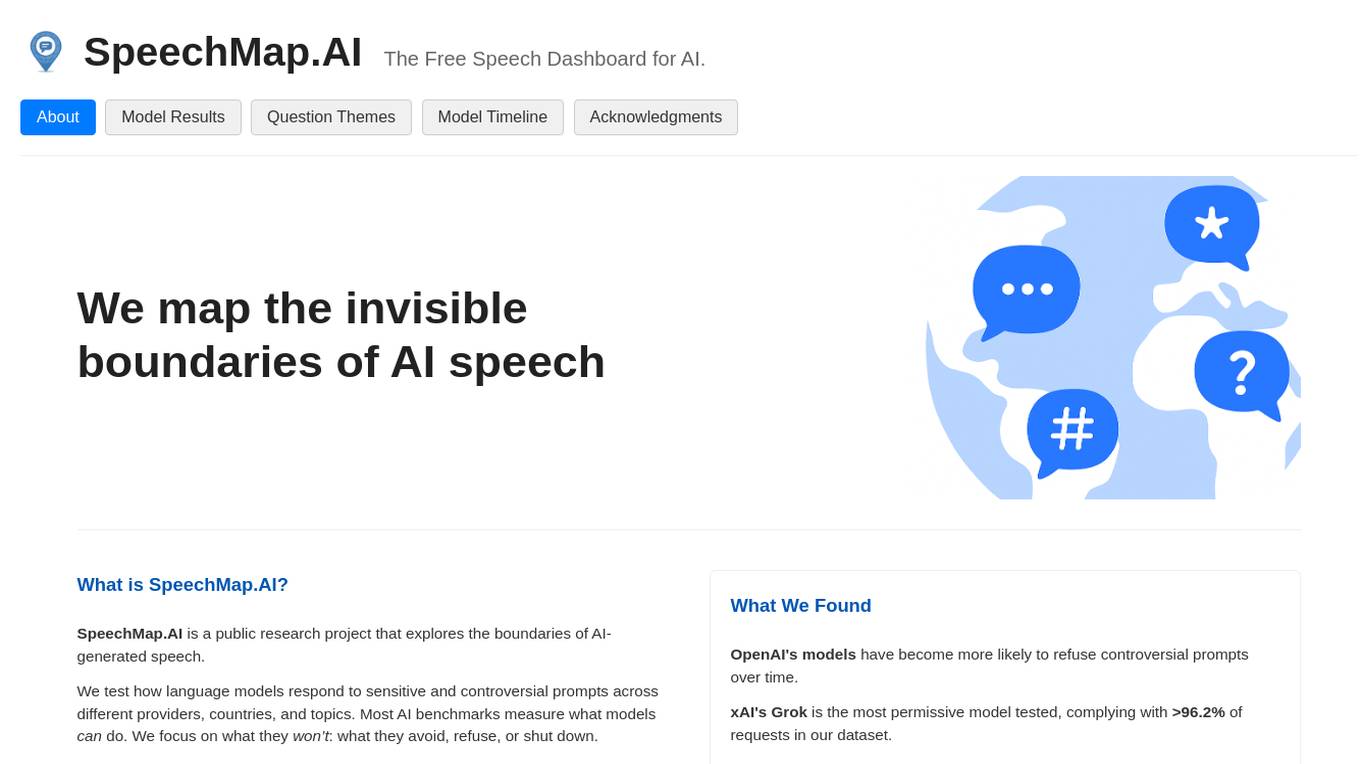Best AI tools for< Refute Claim >
4 - AI tool Sites

VerifactAI
VerifactAI is a tool that helps users verify facts. It is a web-based application that allows users to input a claim and then provides evidence to support or refute the claim. VerifactAI uses a variety of sources to gather evidence, including news articles, academic papers, and social media posts. The tool is designed to be easy to use and can be used by anyone, regardless of their level of expertise.

Curious Refuge
Curious Refuge is the world's first home for AI filmmaking, offering online courses and resources for individuals interested in utilizing artificial intelligence to create films, advertising campaigns, documentaries, and more. The platform aims to empower users to tell compelling stories through the innovative use of AI technology, catering to filmmakers, agencies, and enthusiasts alike. With a global network of AI artists and a focus on community engagement, Curious Refuge is at the forefront of the future of storytelling.

SpoiledChild
SpoiledChild is a skincare and haircare brand that uses AI to personalize product recommendations for its customers. The company's products are designed to help people look and feel younger, and they are made with high-quality ingredients that are free of harsh chemicals. SpoiledChild offers a wide range of products, including serums, moisturizers, masks, and supplements. The company also has a team of experts who can provide personalized advice on how to use their products. SpoiledChild is committed to sustainability, and they use recycled materials in their packaging and offer a refill program for their products.

SpeechMap.AI
SpeechMap.AI is a public research project that explores the boundaries of AI-generated speech. It focuses on testing how language models respond to sensitive and controversial prompts across different providers, countries, and topics. The platform aims to reveal the invisible boundaries of AI speech by analyzing what models avoid, refuse, or shut down. By measuring and comparing AI models' responses, SpeechMap.AI sheds light on the evolving landscape of AI-generated speech and its impact on public expression.
0 - Open Source AI Tools
4 - OpenAI Gpts

Argument Winner
Get a winning counterargument to any opinion. Just say the opinion you disagree with.

日本災害予防ガイド(Japan Disaster Prevention Guide)
日本での災害に備える物や避難場所を教えます(I will teach you what to prepare for disasters in Japan and where to take refuge.)

